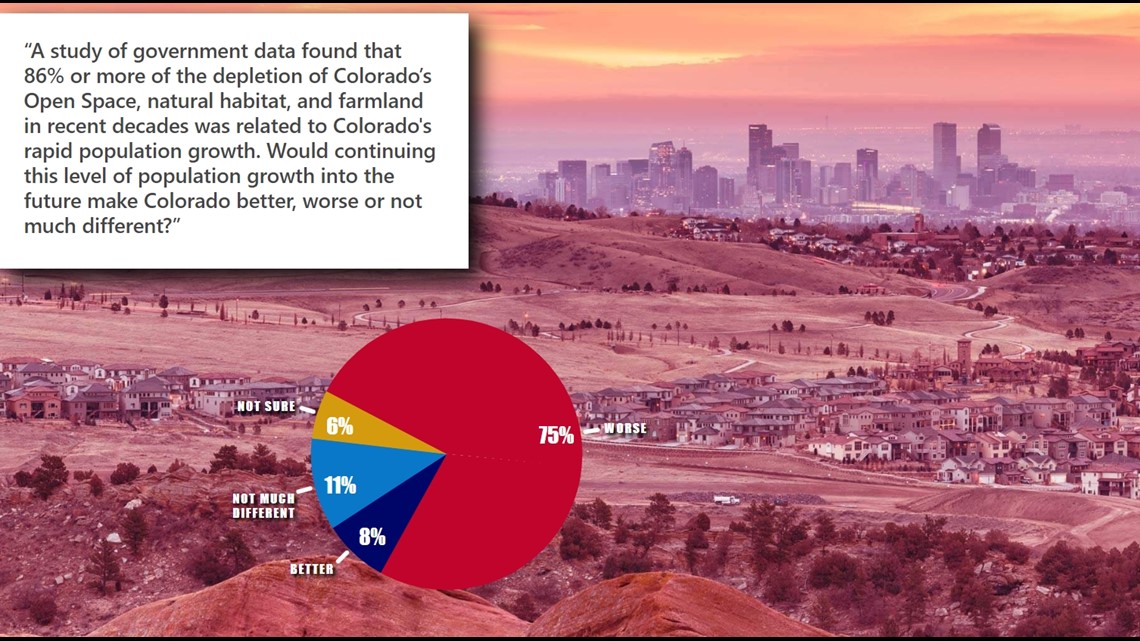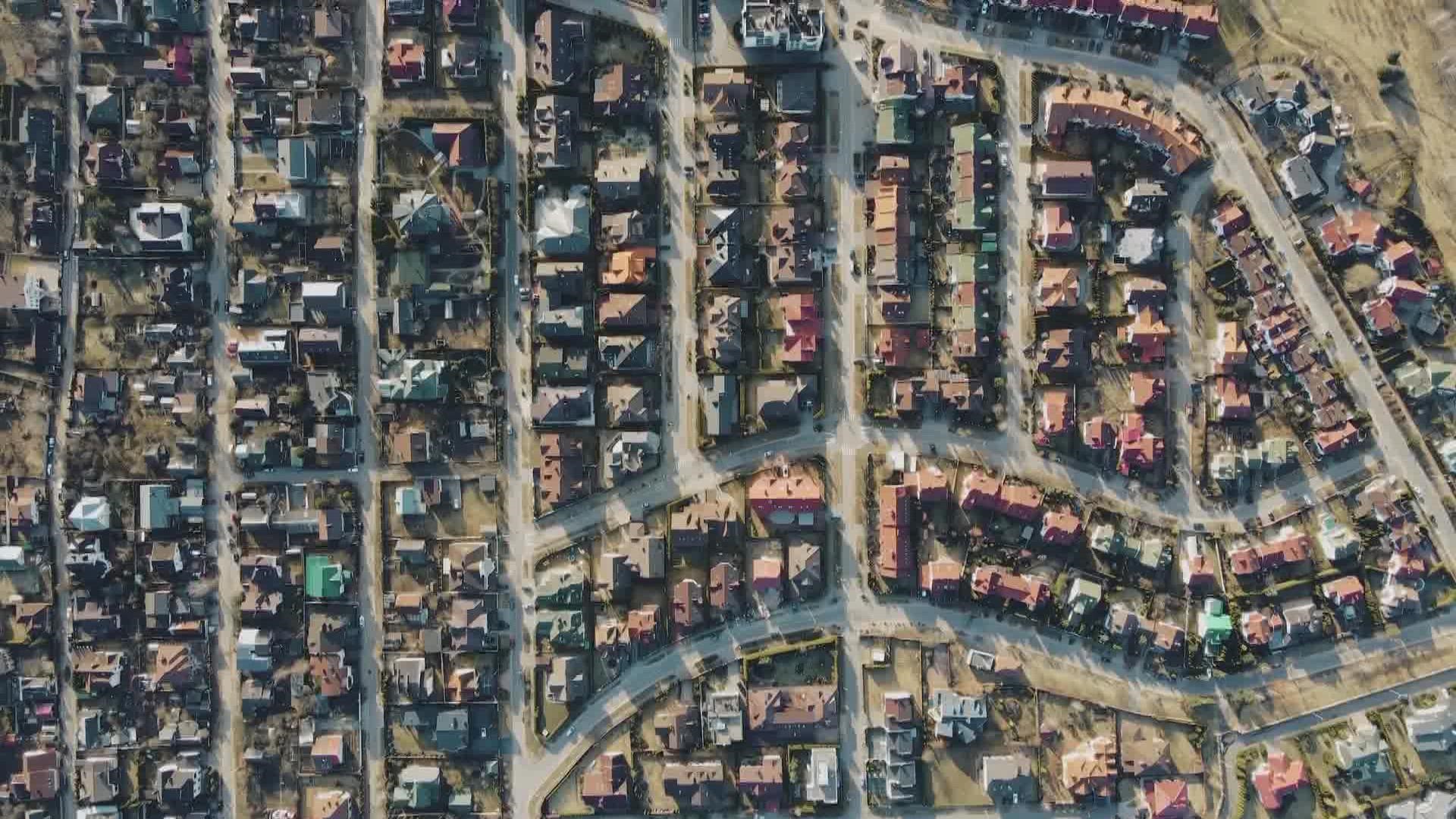DENVER — The state of Colorado is projected to gain 1.8 million more residents by the year 2050.
While that can be a sign of economic prosperity, a study by NumbersUSA indicates most residents think that growth will have too many negative impacts.
“We as a society, and the Western world in general, have got to find ways to have long-term sustainable prosperity that doesn’t depend on population growth,” said Leon Kolankiewicz, the science director for NumbersUSA, an advocacy group that favors immigration levels that would allow for population stabilization.
The study includes a scientific survey of 1,024 Colorado residents conducted by the Rasmussen research group. It focuses on several environmental issues, including water.
Citing increased traffic, the loss of open space, and a strain on the water supply, 75% of Coloradans surveyed said urban sprawl, which is the encroachment of cities into natural space and agricultural space, is making Colorado a worse place to live.


Kolankiewicz said urban sprawl damages natural waterways, takes water away from agriculture and reduces the supply of water.
Of those surveyed, 70% said water should not be diverted away from agriculture in favor of supporting further urban development.
And 76% said water should be kept in streams to support wildlife.
Rebecca Mitchell, Director of the Colorado Water Conservation Board, said even with a stable or reduced population, there still may not be enough water because of a 20-plus-year mega-drought in the West.
“We don’t fight with Mother Nature; we dance with her, and we embrace her. And I think how we do that is by living within what she provides,” she said.
Mitchell agrees that the number of new water users in the West is important to account for, but the real math happens at our reservoirs. There's been consistently more water being released than Mother Nature is adding in with precipitation. And she said that's a huge problem.
She said our state has been successfully adapting to doing more with less, trying to get to the point where we are not writing "water checks" that Mother Nature can't cash.
She said because of things like summer watering restrictions, education and conservation efforts, Colorado is actually using less water now than ever before.
“For example, both Aurora and Denver have reduced their per capita water use by 36%, even as they’ve seen their populations grow,” she said.
While the state has a responsibility to prepare for the likely population surge, Kolankiewicz said we should convince our politicians to stop the boom.
“All those measures are important, but if they're only there to accommodate more population growth, then that population growth and sprawl is negating the benefits that those conservation measures can allow for,” he said.
SUGGESTED VIDEOS: Colorado Climate

